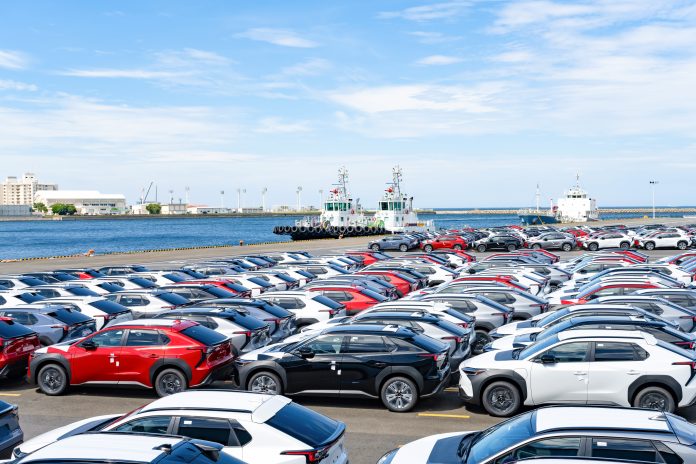Major automakers are deliberately leaving newly imported vehicles at U.S. ports to delay paying steep tariffs, a high-stakes gamble that could soon jam shipping logistics across the country.
On Friday, Mitsubishi joined Audi and Land Rover in halting pickups of their vehicles at port facilities. The move is part of a broader strategy to avoid immediate tariff costs, which are only triggered once cars are processed out of port storage. According to a new Financial Times report, the growing backlog is beginning to clog U.S. port storage lots, raising concerns among logistics professionals about a potential shipping crisis.
“We are getting closer to capacity at some ports,” one logistics executive told the Financial Times. Another warned the situation could “get quite ugly,” with ports “set to fill up fast.”
Automakers are now exploring alternative storage options, including bonded warehouses that allow for tariff-free storage—at least temporarily. While holding fees at ports remain high, some manufacturers see the financial risk as worth it, particularly if President Donald Trump reverses course on vehicle import tariffs.
Trump, who recently enacted a 90-day pause on some non-auto duties, has also hinted at flexibility on vehicle tariffs. If lifted, the move could save automakers millions — especially those with existing inventory parked at ports.
For now, most automakers are still in a manageable position. The average car company started April with a 70-day supply of vehicles — just shy of the industry’s two-month target. Mitsubishi, Land Rover, and Audi all report having ample stock to meet customer demand in the short term.
However, if sales remain strong and tariffs persist, inventory could begin to run short, forcing companies to import vehicles at significantly higher costs. That scenario would also raise consumer prices and increase pressure on automakers already dealing with narrow margins.
Meanwhile, port workers are preparing for a possible logjam as shipping companies consolidate deliveries to reduce millions of dollars in planned port fees. Industry experts warn the resulting supply chain bottlenecks could rival the disruptions experienced during the early months of the COVID-19 pandemic.



